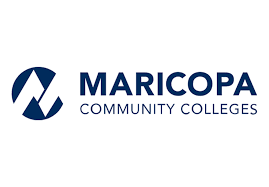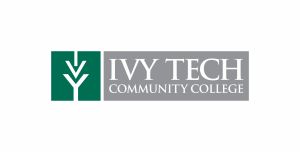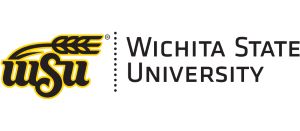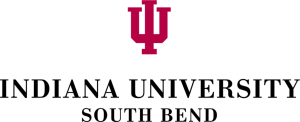There are a lot of perks to becoming a dental hygienist. A dental hygiene career is high-paying, especially considering the minimum level of education required to get started. The job outlook over the next 10 years is favorable.
If you’re not put off by the idea of sticking your fingers in strangers’ mouths (while wearing gloves, of course), a career in dental hygiene practice may be the right fit for you. Schools offer dental hygiene education programs at the associate degree, bachelor’s degree and master’s degree levels, often at a great value. The affordable dental hygiene degree options below offer students a way to gain specialized knowledge and practice their technical skills as they complete the clinical hours required to become qualified candidates for licensure.
RELATED: 25 Fastest Online Associates Degree Programs
What Is a Dental Hygienist?
Dental hygienist is the title for the non-doctor oral health specialists who examine, clean and polish patients’ teeth. Working alongside and under the supervision of licensed dentists (doctors who specialize in teeth and oral health) and dental assistants, a registered dental hygienist often performs routine dental care tasks.
What Dental Hygienists Do
Some of the work dental hygienists perform in a dental office or clinic might include:
- Using specific X-ray techniques to take X-rays of the mouth,
- Removing stains and tarter on the teeth and gums through advanced scaling techniques
- Applying preventive treatments, like sealants and fluoride, to teeth
Dental Hygienists’ Relationships With Patients in Clinical Practice
Often, a licensed dental hygienist is the first healthcare professional a patient sees when they visit a dental office or clinic. In the course of a regular cleaning and exam, a dental hygienist will typically spend more time with the patient than the dentist does.
Dental hygienists work hard, but they also earn higher salaries than many workers across the United States. As of 2020, the U.S. Bureau of Labor Statistics reported a median annual salary of $77,090 for dental hygienists.
RELATED: Top 10 Paying Jobs With an Associate’s Degree
Where Dental Hygiene Graduates Work
The vast majority of dental hygienists work in some sort of dental health facility. These facilities include the following:
- Private dental offices
- Dental hygiene clinics
- Public health clinics
Jobs in dentists’ offices accounted for 94 percent of dental hygienist roles in 2020, according to the Bureau of Labor Statistics. Whether they work in a dental hygiene clinic or in a private practice, dental hygienists’ job duties are typically pretty similar.
Dental Hygienist Jobs Beyond the Dental Offices
Some dental hygienists work in other types of settings, including physicians’ offices, hospitals, corporate health facilities, nursing homes and school systems. Most dental hygienists work in professional practice, but some serve primarily in education and research roles – particularly if they hold an advanced degree in dental hygiene.
A dental hygiene program may also prepare you to work in public health agencies. The field of dental public health generally emphasizes the availability, accessibility and affordability of dental health services to populations of patients that are commonly underserved and have unmet health care needs. Dental hygiene professionals who work in public health may focus on areas like the prevention of human diseases and population health management, the process through which health care workers aim to improve clinical patient outcomes.
Whether you want to work in a dental office or a less conventional setting, you’re going to need a degree in dental hygiene. Fortunately, degrees in dental hygiene with affordable tuition are not as difficult to find as you might expect.
Dental Hygiene Education Requirements
Considering the high median annual salary for this career path, the level of education needed is comparably little. Unlike a dentist who must go to school for many years, a dental hygienist typically needs only a few years of study to prepare for entry-level jobs in the field.
RELATED: Best Major for Dentist: What Major Do You Need to Be a Dentist?
However, in addition to the credit hours of classroom and laboratory instruction that are required for associate’s degrees in dental hygiene, clinical hours devoted to experiential learning are required. As part of the practical experience involved in a dental hygiene program, students in their last semester of study may take part in some sort of capstone practicum or another type of capstone project.
To qualify for professional licensure, students should seek out degree programs that have received dental accreditation from the Commission on Dental Accreditation. When a program is accredited by the Commission on Dental Accreditation, it has proven that it meet a set of high external standards. An aspiring dental hygienist may also want to look for schools that offer small class sizes and courses that cover contemporary issues and are taught by experienced, dedicated faculty.
Dental Hygiene Associate’s Degrees
Typically, you can qualify for a dental hygienist role with only an associate’s degree. In fact, according to O*NET, 75 percent of dental hygienists report an associate degree as their highest level of formal education. However, dental hygiene associate degrees are unique, typically requiring three years of study and plenty of clinical hours, according to the Bureau of Labor Statistics.
RELATED: How Long Does It Take to Earn an Associate’s Degree?
Dental Hygiene Education Beyond the Associate’s Degree
Dental hygienists may also choose to earn a higher level of degree, like a bachelor’s degree or even a master’s degree. Some BS in dental hygiene programs are offered as degree completion programs, a type of bridge program that allow students with an associate’s degree to build upon their prior coursework to earn a bachelor’s degree.
Are There Cheap Dental Hygiene Schools?
Earning a degree in dental hygiene doesn’t have to plunge you deep into student debt. There are schools across the United States where students seeking degrees in dental hygiene can get an education for just a few thousand dollars per year – well below the national average for annual tuition rates – even without financial aid. That’s well below the average salary for this career, which means that dental hygienists who make at or near the average salary for the occupation over the course of their working life will find that this degree more than pays for itself.
When you factor in the availability of financial aid in the form of scholarships, grants, work-study opportunities and other forms of assistance, financial aid packages make it even affordable to become a dental hygienist.
These schools are often community colleges and public state universities rather than fancy private universities. Fortunately, there’s no shortage of community colleges and public state schools offering dental hygiene degrees. If you want a cheap way to earn your dental hygienist degree, you just need to make affordability a priority in your school search.
Stay Close to Home
When it comes to keeping college affordable, staying in-state and, where applicable, in-district is one of your best options. Many colleges, especially community colleges and public universities, offer discounted rates to local residents. Some community colleges go so far as to offer their best tuition rates to residents of specific counties or districts.
What this means is that an institution may be a “cheap” dental hygiene school for some students but not others, depending on geographic location. Students in-state at a generally affordable school may pay tuition of only a few thousand dollars per year, while students the next state or district over may have to pay three or four times that much for the exact same education (not counting costs to relocate or rent a place to live).
There’s value in seeing and studying in new places, but when your focus is on affordability, you shouldn’t ignore the financial cost of going away to college.
A Note About the Listed Tuition Costs of “Cheap” Dental Hygiene Programs
The dental hygiene school rankings presented here are based on affordability and categorized by degree level. Measures of affordability are based on the most up-to-date tuition data as of 2022 and assume that the dental hygiene student is taking 15 credits per semester over the fall and spring terms.
This annual tuition data does not include fees, room, board, textbooks or other expenses besides tuition and assumes that students are not taking summer or winter classes. Annual tuition rates at most schools change each year, so prospective students should visit intended schools’ most up-to-date tuition page or talk to an admissions counselor about current tuition rates and costs of attendance.
Can You Earn an Online Dental Hygiene Degree?
Studying online is a great option to save money on a degree, especially if the alternative would require you to leave your job and move to a new geographical area. However, online tuition rates aren’t always cheaper, and sometimes schools tack on extra fees on online learners.
It is possible to get a dental hygiene degree online, but only in certain situations. Since in-person clinical experience is essential for preparing to be a dental hygienist, you typically can’t earn your associate degree in this field fully online.
Online dental hygiene degrees are most commonly reserved for established dental hygienists who have already finished their associate’s degree and earned their licenses. As such, you are more likely to find fully online bachelor’s degree options, or even an online dental hygiene degree at the master’s level, than online options at the associate’s degree level. An online bachelor of dental hygiene can add to the existing qualifications of a practicing dental hygienist.
The Best Cheap Associate’s Degree Programs in Dental Hygiene
1. Maricopa Community Colleges System (Mesa, Rio Salada, Pheonix)

For an associate’s degree that will help you prepare for the licensing process in Arizona, as well), consider applying to the Maricopa Community Colleges system. Three colleges in this system – Mesa Community College, Phoenix College and Rio Salado College – offer dental hygiene programs at the associate degree level.
Residents of Maricopa County and counties with reciprocal agreements pay just $85 per credit, which puts the total tuition cost of the 92- through 102.5-credit degree program (not counting fees) at under $8,000. However, residents of other counties and out-of-state students will pay considerably more – 401 per credit hour and 241 per credit hour, respectively.
In the Associate of Applied Science programs in dental hygiene, students complete general education courses such as English composition, college mathematics, psychology and sociology. Science classes in microbiology and in human anatomy and physiology – including classes that focus on neck anatomy and on oral anatomy – are an important part of the curriculum.
Major coursework consists of oral pathology, dental radiology, dental radiography, dental materials and periodontics, the dental specialty that focuses on gums and the structures that support the teeth. Other dental hygiene courses in this degree program focus on the administration of dental anesthesia, the prevention of dental disease, the practice of dental hygiene patient care in medical emergencies, principles of practice management and methods for community oral health.
The dental hygiene degree programs of all three of these community colleges are accredited by the Commission on Dental Accreditation of the American Dental Association.
View program website.
In-state yearly tuition cost: $2,550.00
2. Tyler Junior College
 Students can pursue either an associate degree or a bachelor’s degree completion program in dental hygiene at Tyler Junior College in Texas, as well as a dental assisting certificate program. At a dental clinic located directly inside the school’s Robert M. Rogers Nursing & Health Sciences Center, dental hygiene students can develop the clinical skills to perform examinations, cleanings, X-rays and sealants on patients from the community.
Students can pursue either an associate degree or a bachelor’s degree completion program in dental hygiene at Tyler Junior College in Texas, as well as a dental assisting certificate program. At a dental clinic located directly inside the school’s Robert M. Rogers Nursing & Health Sciences Center, dental hygiene students can develop the clinical skills to perform examinations, cleanings, X-rays and sealants on patients from the community.
Prospective dental hygienists pursuing their Associate of Applied Science degree can expect to take preclinical and clinical classes in dental hygiene as well as courses in preventive dental care, oral pathology, periodontology, dental materials, dental pharmacology, community dentistry, dental nutrition and more. This degree path is intended to prepare students for licensing exams.
The bachelor’s degree in dental hygiene at Tyler Junior College is meant for practicing dental hygienists who are already licensed but want to expand their knowledge and skills with a four-year degree. As such, applicants must have an associate’s degree already, and their coursework builds upon the foundation of college study they already possess.
This one- to two-year degree completion program is available online. This program incorporates coursework that ranges from current issues and advanced ethics in dental hygiene and periodontics to administrative leadership and cultural competence in oral health care.
Tuition costs for students taking 15 credit hours per semester range from $1,481 for in-district students to $2,381 for out-of-district students and $2,741 for out-of-state students. The AAS program is accredited by the American Dental Association Commission.
View program website.
In-state yearly tuition cost: $2,962.00
3. Mississippi Delta Community College
 An affordable option for aspiring dental hygienists in the Magnolia State is Mississippi Delta Community College. The AAS degree program at this Moorhead community college doesn’t only meet the educational standards required for dental hygienist licensure in Mississippi but also prepares students to take the other state board exams administered by the National Board of Dental Examinations. (If you’re thinking of working out-of-state, check your intended state’s licensing requirements.)
An affordable option for aspiring dental hygienists in the Magnolia State is Mississippi Delta Community College. The AAS degree program at this Moorhead community college doesn’t only meet the educational standards required for dental hygienist licensure in Mississippi but also prepares students to take the other state board exams administered by the National Board of Dental Examinations. (If you’re thinking of working out-of-state, check your intended state’s licensing requirements.)
In this dental hygiene technology associate degree program, students will complete 24 academic hours of coursework and 51 hours of dental hygiene classes. Over the course of the curriculum, dental hygiene students will develop competencies in health promotion, disease prevention, patient care, community involvement, ethics and professional growth.
Mississippi Delta Community College’s program, too, has attained programmatic accreditation from the American Dental Association’s Commission on Dental Accreditation. The tuition rate for full-time students – those taking 12 to 21 credit hours per semester – is $1,545, while part-time students pay $130 per credit hour. Out-of-state students are subject to an out-of-state fee of $1,100 per semester.
The low student-to-faculty ratio and the state-of-the-art primary clinical education facility where students can gain real-world practical experience, in and of themselves, make this program appealing for more than its affordability. For nearly a decade, the school’s graduates have achieved a 100% pass rate on Mississippi state board exams and on the National Board Dental Hygiene Examination.
View program website.
In-state yearly tuition cost: $3,090.00
RELATED: What Associate’s Degrees Are Good for a Career in the Health Care Industry?
4. Ivy Tech Community College
 Offering both dental assisting and dental hygiene degrees, Ivy Tech Community College offers courses at 48 locations across the state, plus online. Dental hygiene students at this Indiana institution can choose from three Ivy Tech campuses: Anderson, South Bend and Elkhart. Courses are structured in eight-week terms, and tuition for full-time in-state students is charged at a flat per-semester rate of $2,243.25.
Offering both dental assisting and dental hygiene degrees, Ivy Tech Community College offers courses at 48 locations across the state, plus online. Dental hygiene students at this Indiana institution can choose from three Ivy Tech campuses: Anderson, South Bend and Elkhart. Courses are structured in eight-week terms, and tuition for full-time in-state students is charged at a flat per-semester rate of $2,243.25.
One of the first things students should know about this affordable, American Dental Association Commission-accredited program is that getting in won’t be easy. This selective admission program admits only a limited number of students every year, contributing to the small class sizes it is able to maintain.
If you’re determined to apply, you first need to be accepted into the community college under its healthcare specialist program. In your first few semesters as a healthcare specialist major, you will complete prerequisite coursework in areas like English composition, public speaking and psychology, as well as basic science courses in biology, chemistry and anatomy and physiology. Then you can follow a separate application process, which includes taking the Test of Essential Academic Skills (TEAS) standardized test.
In this Associate of Applied Science in dental hygiene program, students get plenty of hands-on clinical experience using the most recent advances in dental technology in the cutting-edge dental clinic where they treat real patients from the local community.
This primarily daytime program will keep students engaged in classroom, laboratory and clinical work throughout the workweek. During the two-year program, students should be prepared to devote between 16 and 26 hours per week to their on-campus commitments, not counting homework and studying.
View program website.
In-state yearly tuition cost: $4,486.50
5. Utah Valley University
 In addition to affordability, Utah Valley University offers small class sizes with a student-to-faculty ratio of just 4-to-1 in its associate’s in dental hygiene program, and 99 percent of its graduates pass the state licensing boards. The Orem, Utah, program is big on community outreach, including providing preventive dental care to students at local Title One elementary schools on a weekly basis.
In addition to affordability, Utah Valley University offers small class sizes with a student-to-faculty ratio of just 4-to-1 in its associate’s in dental hygiene program, and 99 percent of its graduates pass the state licensing boards. The Orem, Utah, program is big on community outreach, including providing preventive dental care to students at local Title One elementary schools on a weekly basis.
You might expect a program with these benefits to be super selective, but in fact, the dental hygiene program accepts all kinds of students – nontraditional students and those fresh out of high school, career changers and parents balancing family obligations – through its open enrollment policy. Practicing dental hygienists can pursue the BS in Dental Hygiene, an online bachelor’s degree completion program.
Tuition rates for 12 or more credit hours of coursework are $2,684 for in-state students and $8,225 for out-of-state students. Although non-resident students pay a not-so-affordable $16,450 in tuition only for the fall and spring terms, residents get by with a reasonable $5,368 for the year.
View program website.
In-state yearly tuition cost: $5,368.00
6. Pueblo Community College
 In addition to offering both an associate’s degree and a bachelor’s degree completion program, Pueblo Community College offers a three-credit mini-certificate program in the administration of local anesthesia, nitrous oxide and oxygen sedation.
In addition to offering both an associate’s degree and a bachelor’s degree completion program, Pueblo Community College offers a three-credit mini-certificate program in the administration of local anesthesia, nitrous oxide and oxygen sedation.
The Colorado school charges per-credit tuition rates of $399.15 for residents and $638.30 for non-residents for the associate’s degree program. Assuming around 30 credit hours per year (split between fall and spring semesters), this adds up to $11,974.50 for Colorado residents and $19,149. However, Colorado residents qualify for an additional discount through the College Opportunity Fund (COF) stipend, which knocks off another $94 of tuition cost per credit hour. In-state students end up with a tuition rate of $305.15 per credit or $9,154.50 per year. In this accredited Associate of Applied Science in dental hygiene program, students devote 64.5 credits to their core dental hygiene courses, plus 28 credits to general education courses that include science classes. Core coursework for students in this program includes clinical theory and practice of dental hygiene, advanced clinical skills, applied pharmacology, a sequence of courses in periodontics and studies in the administration of local anesthesia, nitrous oxide and oxygen sedation.
This dental hygiene program features the opportunity to take optional but recommended courses in two subjects: clinical dental roentgenology and national boards examination review.
View program website.
In-state yearly tuition cost: $9,154.50
The Best Affordable Bachelor’s in Dental Hygiene Programs
7. Dixie State University
 Dixie State University in St. George, Utah, offers a 124-credit Bachelor of Science in dental hygiene degree that aligns with licensure requirements in the Beehive State. Notable courses in the Bachelor of Science in Dental Hygiene curriculum include dental hygiene theory, tooth morphology, pain control methodology, restorative dental hygiene and advanced theory and practice.
Dixie State University in St. George, Utah, offers a 124-credit Bachelor of Science in dental hygiene degree that aligns with licensure requirements in the Beehive State. Notable courses in the Bachelor of Science in Dental Hygiene curriculum include dental hygiene theory, tooth morphology, pain control methodology, restorative dental hygiene and advanced theory and practice.
Classes like research methodology, public health administration and care of medically complex patients make this curriculum well-rounded, so students are ready to work in clinical practice, research or public health roles.
For students taking 12 to 20 credits, undergraduate tuition rates range from $2,532 for the semester for in-state students to $8,094 for non-residents. Dixie State University offers a “Good Neighbor Tuition Rate” that applies for certain students from certain Arizona and Nevada counties, under which students save on the non-resident tuition rate but pay 150% of the resident tuition rate.
View program website.
In-state yearly tuition cost: $5,064.00
8. Clayton State University
 At Clayton State University in Morrow, Georgia, students can pursue a dental hygiene BS degree accredited by the American Dental Association Commission on Dental Accreditation. In addition to this licensure track program, the school offers a bachelor’s degree completion program, the RDH-BSDH, for students with an associate’s degree in dental hygiene.
At Clayton State University in Morrow, Georgia, students can pursue a dental hygiene BS degree accredited by the American Dental Association Commission on Dental Accreditation. In addition to this licensure track program, the school offers a bachelor’s degree completion program, the RDH-BSDH, for students with an associate’s degree in dental hygiene.
Bachelor’s in dental hygiene programs in dental hygiene include more extensive studies in both general education courses and major coursework. On top of the classes commonly required for an associate degree, this Bachelor of Science degree program encompasses coursework in transitional dental hygiene, advanced dental hygiene, advanced periodontics, interactive communication and management and marketing in a dental environment.
Per credit hour, Clayton State University charges its in-state dental hygiene students tuition rates of $169.33 and its out-of-state students $616.07. This means the in-state tuition cost is just $5,079.90, even though out-of-state students pay more than $18,000 a year to pursue this Bachelor of Science degree.
View program website.
In-state yearly tuition cost: $5,079.90
9. Wichita State University
 You’ll find two Bachelor of Science in dental hygiene options at Wichita State University in Kansas. The entry-level bachelor’s degree program leads to licensure, while the fully online bachelor’s degree completion program allows experienced health professionals to advance their dental hygiene education. The school recently celebrated its Class of 2020 graduates achieving a 100% pass rate on their National Written and Regional Clinical Boards licensing examinations.
You’ll find two Bachelor of Science in dental hygiene options at Wichita State University in Kansas. The entry-level bachelor’s degree program leads to licensure, while the fully online bachelor’s degree completion program allows experienced health professionals to advance their dental hygiene education. The school recently celebrated its Class of 2020 graduates achieving a 100% pass rate on their National Written and Regional Clinical Boards licensing examinations.
Tuition rates at Wichita State University get a little complicated, with six different rates depending on students’ residency. Undergraduate resident students pay $228.09, and that cost climbs all the way up to $540.27 for non-residents who don’t fit into any tuition discount program. Still, a year of coursework at a four-year university for under $7,000 is surprisingly affordable.
View program website.
In-state yearly tuition cost: $6,842.70
10. Indiana University at South Bend
 The Bachelor of Science in Dental Hygiene program at Indiana University at South Bend is offered through the Vera Z. Dwyer College of Health Sciences. Within this program are pathways for a variety of students: new college students seeking a bachelor’s degree in dental hygiene, students whose bachelor’s degrees are in an unrelated field and professional dental hygienists pursuing a bachelor’s degree completion program.
The Bachelor of Science in Dental Hygiene program at Indiana University at South Bend is offered through the Vera Z. Dwyer College of Health Sciences. Within this program are pathways for a variety of students: new college students seeking a bachelor’s degree in dental hygiene, students whose bachelor’s degrees are in an unrelated field and professional dental hygienists pursuing a bachelor’s degree completion program.
Students of this accredited, affordable bachelor’s degree program gain hands-on experience providing care at the Indiana University South Bend Dental Hygiene Clinic. As part of the school’s strong curriculum, students complete a capstone course. Graduates of the program are prepared to pursue both dental hygiene licensure and local anesthesia certification in Indiana.
In-state undergraduate students at this institution pay a per-unit tuition rate of $239.01 or a flat rate of $3,584.92 per term if they take 12 to 18 credit hours in a semester. For out-of-state students, those prices rise to $675.90 or $10,138.52 per term.
View program website.
In-state yearly tuition cost: $7,169.84
11. Minnesota State University at Mankato
 If you’re wondering about the value of earning a bachelor’s degree in a field that only requires an associate’s degree, check out the Bachelor’s in dental hygiene program at Minnesota State University at Mankato. As part of their high-quality education, students in the Commission on Dental Accreditation-accredited program learn advanced clinical and technology skills.
If you’re wondering about the value of earning a bachelor’s degree in a field that only requires an associate’s degree, check out the Bachelor’s in dental hygiene program at Minnesota State University at Mankato. As part of their high-quality education, students in the Commission on Dental Accreditation-accredited program learn advanced clinical and technology skills.
Students in the bachelor’s in dental hygiene program gain direct experience using electronic health records and other computer-based technologies, like intraoral cameras and digital X-rays. Additionally, students in these dental health programs learn how to place fillings – a skill you typically won’t learn at a community college program – and practice this skill through training that takes place at the school’s on-campus dental clinic and at local community health clinics.
Minnesota State University at Mankato is also an option for students looking to earn an online dental hygiene degree. Like other online colleges for dental hygienists, the online bachelor’s degree program at Minnesota University accepts students who are already working as registered dental hygienists.
Besides their in-state tuition rate of $315.65 per credit or $4,036.25 per semester with a full course load, Minnesota State University has reciprocity agreements and compacts with certain states that allow for discounted tuition.
View program website.
In-state yearly tuition cost: $8,072.50
12. Augusta University
 Augusta University’s dental hygiene degree program includes both a bachelor’s in dental hygiene track designed to prepare students for initial licensure and a bachelor’s degree completion program option. Major coursework requirements make up 65 of the 129 credits required for graduation and consist of classroom, clinical and laboratory work.
Augusta University’s dental hygiene degree program includes both a bachelor’s in dental hygiene track designed to prepare students for initial licensure and a bachelor’s degree completion program option. Major coursework requirements make up 65 of the 129 credits required for graduation and consist of classroom, clinical and laboratory work.
While Georgia residents will find this dental hygiene program affordable, non-residents will not. In-state students of August University pay undergraduate tuition rates of $295.47 per credit hour or $4,432.00 per semester that includes 10 or more credit hours of study. For out-of-state students, those rates climb to $945.93 per hour or $14,189.00 per semester.
This program is a “2+2” program in which the first two years, which are devoted to prerequisites and general education coursework, can be taken at any accredited college. Out-of-state students can save money by meeting these requirements at an in-state school and then transferring to Augusta.
View program website.
In-state yearly tuition cost: $8,864.00
13. Northern Arizona University
 For a dental hygiene program that emphasizes public health, consider the Bachelor of Science program offered by Northern Arizona University. On top of more traditional studies in dental hygiene, students in this program complete classes in ethics and law in healthcare, oral health research, oral health outcomes, assessment and program planning and program implementation and evaluation.
For a dental hygiene program that emphasizes public health, consider the Bachelor of Science program offered by Northern Arizona University. On top of more traditional studies in dental hygiene, students in this program complete classes in ethics and law in healthcare, oral health research, oral health outcomes, assessment and program planning and program implementation and evaluation.
In addition to undertaking clinical rotations at several local health centers, students can pursue a summer externship – domestically, in areas like Phoenix and Camp Pendleton, or abroad, in countries like Peru and Ghana.
Northern Arizona University doesn’t break down the cost of attendance between tuition and fees, but students can expect to pay $10,650 in-state or $25,396 out-of-state in tuition and fees. Under the Western Undergraduate Exchange (WUE), students from 14 other states can save 40% on the non-resident tuition rate.
View program website.
In-state yearly tuition cost: $10,650.00
The Best Affordable Master’s Degree Programs for Dental Hygienists
14. West Virginia University
 Master’s degrees are uncommon in the clinical practice of dental hygiene, but many dental hygienists pursue these advanced degrees to prepare for a role in research, teaching, administration or management. The Master of Science in Dental Hygiene program at West Virginia University can prepare an experienced dental hygienist for any of these paths.
Master’s degrees are uncommon in the clinical practice of dental hygiene, but many dental hygienists pursue these advanced degrees to prepare for a role in research, teaching, administration or management. The Master of Science in Dental Hygiene program at West Virginia University can prepare an experienced dental hygienist for any of these paths.
Tuition rates for graduate students range from $499 per credit or $4,491 per semester for in-state students to $1,407 per credit or $12,663 per semester for out-of-state students. The program requires 37 semester hours of study, plus a thesis. Students complete coursework in health policy foundations, teaching and research methods, applied biostatistics and issues in health care, as well as electives in areas like business, education, medicine and community health promotion.
View program website.
In-state yearly tuition cost: $10,332.00
15. Eastern Washington University
 The Master of Science in dental hygiene program at Eastern Washington University is intended for health care professionals who already have experience providing dental hygiene care in clinical environments. In this online dental hygiene program, students are required to visit the Spokane, Washington, campus on two occasions. However, the classes required for this degree – which include studies in healthcare leadership, dental hygiene instructional methods and curriculum design, public health promotion and healthcare policies – can be completed fully online.
The Master of Science in dental hygiene program at Eastern Washington University is intended for health care professionals who already have experience providing dental hygiene care in clinical environments. In this online dental hygiene program, students are required to visit the Spokane, Washington, campus on two occasions. However, the classes required for this degree – which include studies in healthcare leadership, dental hygiene instructional methods and curriculum design, public health promotion and healthcare policies – can be completed fully online.
Besides its master’s degree, the school also offers dental health education at the certificate, bachelor’s and bachelor’s degree completion levels.
Graduate students at Eastern Washington University pay $12,723 in-state tuition or $28,776 out-of-state tuition. For the online Master of Science degree, all students pay in-state tuition. Undergraduate tuition rates are $7,104 for residents and $25,464 for non-resident students.
View program website.
In-state yearly tuition cost: $12,723.00
What Else to Look for in Degrees in Dental Hygiene
Before you take the first step to a career as a licensed dental hygienist, make you are considering your future career goals and where you are now.
Are you looking for an accelerated option that allow you to complete the full program faster than is typical for this three-year degree, or would a school offering part-time options for working students be a better fit for you personally?
Does attending a school with residency requirements and plenty of hands-on instruction make sense for you, or are you looking for strictly online learning, other than the necessary clinical component?
Do you want to focus exclusively on your dental hygiene training, or are you willing to take the liberal arts and general education courses that you would encounter in a bachelor’s program and potentially be prepared to work in practice management roles in dental offices?
When you’re choosing a school to become a dental hygienist, there’s a lot more to think about besides the annual tuition.
Conclusion
Dental hygienists are a critical part of a dental health team, and the career includes a positive job outlook, high earning potential and fulfilling work in patient care. No matter which level of degree you’re pursuing, looking at school rankings like ours can help you focus your school search and find affordable options to further your education in dental hygiene.
Related Resources
What Degree Do I Need to Become a Dental Hygienist?
What Major Do You Need To Be a Dentist?


